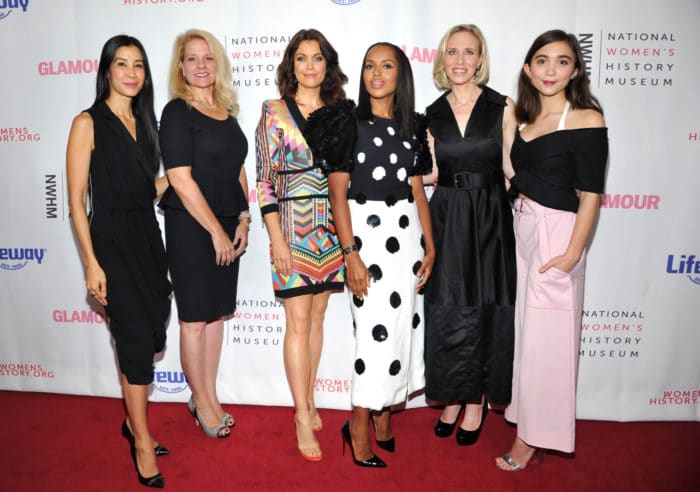Mrs Mercy Makinde, the founder, Amazing Amazon Initiative, a Non-Governmental Organisation (NGO), on Monday advised women to desist from having the ‘entitlement mentality’, believing that someone owes them, but to always take up a sense of responsibility.
Makinde spoke with the News Agency of Nigeria (NAN) in Lagos, while shedding light on empowerment programmes of her NGO, of which 67 women more had become beneficiaries through a just-concluded six-day skills acquisition programme.
She said of womenfolk: “First of all, we feel that our parents owe us, then we leave our parents and get married and shift it on our husbands that owe us.
“Our children grow up, then we begin to say that our children owe us, and it goes on and on even to our rich friend, everyone just continues to owe us.
“Nobody owes you anything!
“You are meant to understand that, and the moment you do, it will give you the zeal and sense of responsibility needed, making you to say there is nothing impossible for you to achieve.”
Makinde said she founded her NGO based on her personal experience as a survivor of domestic violence, and sought to pull up more women facing challenges in the society.
“I realise that a lot of women are going through hardships due to some factors. Some lack support system, lack proper counseling and financial freedom.
“The fear of stigmatisation and victimisation will not let them leave an abusive relationship, and when they leave, there’s nothing to fall back on.
“This is because in the society that we live, no one wants to be responsible for breaking another person’s home.
“After experiencing an abusive relationship for 11 years, I struggled for four years to get back on my feet due to rejection.
“I decided to do my best to ensure no other woman around me goes through the same pain and ordeal l went through by giving them the support to move on,” she said.
According to her, it first started out as a support group to help victims talk about their situation and find help for them.
“I realised that it is also very important that women are empowered whether they are abused or not and that’s how the Skills Acquisition Program was established.
“We are doing this to help all women, especially the vulnerable ones, including the survivors of domestic violence, victims of abuse, women with disabilities, widows and single mothers,” she said.
Makinde said that the skills acquisition programme, which began in 2016, included classes in baking, catering, fashion designing and turban making, among others.
The founder said that the programme holds twice annually, noting that the first session was designed to mark the International Women’s Month in March, and the second in November, the month of her birth.
Makinde said that her organisation would be partnering with another NGO which specialises in caring for individuals with disabilities to cater to women with special needs who would be attending future programmes.
She said that no fewer than 1,200 women had been trained since its inception in 2016, while over 10,000 women had enjoyed training from its various online platforms.
Makinde, however, said some challenges she faced running the programme include funding, poor electricity, poor attitude of the trainees and inadequate partnership.
Mrs Ann Omofuma, a housewife and mother of two, who graduated as the best overall student at the programme, told NAN that she was able to achieve the feat through hard work and sheer determination.
She said that she got to know about the training through Facebook.
“I was working before I got married, I got pregnant immediately after my wedding when I moved to Lagos and I couldn’t get a job because I was pregnant.
“I got tired of staying at home and asking my husband for money. I just needed to be independent by empowering myself.
“I was in the pastry class, I learned cake making, how to make finger foods like samosa, spring rolls, other snacks and drinks.
“Everything about the training was free, at first when I saw the advertisement on Facebook, I thought it was one of those money spending skill acquisition programmes so I was reluctant until I decided to give it a try.
“When I arrived on the first day, I was really impressed and I decided to keep coming until I finished it,” she said.
Omofuma said her short term plan was to start a business operating from her home and in future open an outlet with the proceeds from the budding business.
Mrs Opeyemi Lamidi, a trainee from Badagry, Lagos State, who won the prize for punctuality, described herself as a ‘stay at home mother’ of a three-year-old son living with a disability (cerebral palsy).
She said :“It is a big task coping with my son’s condition in Nigeria. I wanted to start a side hustle to help my husband who’s a newspaper vendor because I don’t want to be a burden to him.
“I came all the way from Badagry to Ikeja, to learn the skills. I used to leave my house in Badagry around 4.15am to arrive Ikeja at 7a.m most days.
“I learned how to make turbans and fascinators and I loved everything about my class.”
Lamidi said she came to the training because of financial issues, with challenges in paying for her son’s therapy.
“He is undergoing physiotherapy, occupational therapy with visits to a neurosurgeon and a neurologist.
“His drugs cost N10,000 monthly and I needed to supplement our household income.
“I decided to learn these skills so I can train mothers of children with special needs and also pass on my skills to everyone living with disabilities in my area.
“I look forward to taking more classes in order to give back to the society,” she said. (NAN)

